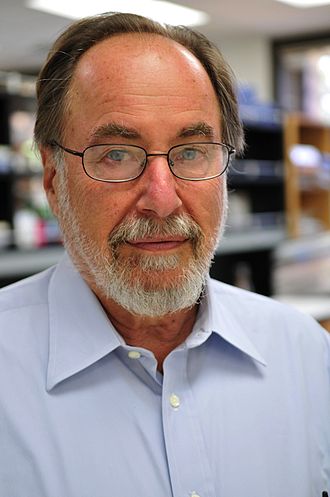
A Nobel Prize laureate responsible for discovering the interaction between tumor viruses and the genetic material of the cell will give the George E. Palade Distinguished Lecture and receive the award of the same name at the WSU School of Medicine next month.
David Baltimore, Ph.D., will give the lecture and receive the award, sponsored by the WSU Center for Molecular Medicine and Genetics, on Sept. 25.
Dr. Baltimore won the 1975 Nobel Prize in Physiology or Medicine with Renato Dulbecco and Howard Temin for their discoveries involving "the interaction between tumor viruses and the genetic material of the cell."
The president emeritus and the Robert Andrews Millikan Professor of Biology at the California Institute of Technology, Dr. Baltimore is a former president of Rockefeller University, the founding director of the Whitehead Institute for Biomedical Research at the Massachusetts Institute of Technology and a recipient of the 1999 National Medal of Science.
Dr. Baltimore will present "Fine Control of Gene Expression by Retaining Introns" from 11 a.m. to noon in the Green Lecture Hall in Scott Hall. The lecture is open to all students, faculty and staff.
Treatment of cells with proinflammatory stimuli like Tumor Necrosis Factor turns on a gene program that greatly alters the cells' properties. Central to that program is activation of the transcription factor, NF-kB. Dr. Baltimore's work has demonstrated that although NF-kB-mediated transcriptional activation happens within five minutes of treatment, the induced program activates over many hours. This has led to the realization that the splicing of the pre-mRNA gene transcripts from individual genes is spread over time and is controlled at least partially by bottleneck introns that are slow to splice. The splicing of bottleneck introns involves a specific splicing factor, the function of which Dr. Baltimore is in the process of determining.
Dr. Baltimore earned his bachelor's degree with high honors from Swarthmore College in 1960, and credits his interest in molecular biology to George Streisinger, under whose mentorship he worked for one summer at Cold Spring Harbor Laboratory.
He entered MIT's graduate program in biology in 1960, where he made fundamental discoveries on virus replication and its effect on cell metabolism, including the first description of an RNA replicase enzyme, completing his doctoral thesis in 1964. On completion of his degree, Dr. Baltimore returned to MIT for postdoctoral research with James Darnell. He continued his work on virus replication using poliovirus and pursued training in enzymology with Jerard Hurwitz at Albert Einstein College of Medicine in 1964-1965.
In 1965, he was recruited by Renato Dulbecco to the newly established Salk Institute for Biological Studies as an independent research associate. There he investigated poliovirus RNA replication and began a long and storied career of mentoring early careers, including those of Marc Girard and Michael Jacobson, who discovered the mechanism of proteolytic cleavage of viral polyprotein precursors, pointing to the importance of proteolytic processing in the synthesis of eukaryotic proteins. He also met his future wife, Alice Huang, who began working with Dr. Baltimore at Salk in 1967.
The couple carried out key experiments on defective interfering particles and viral pseudo types. During this work, he made the key discovery that polio produced its viral proteins as a single large polyprotein that was subsequently processed into individual functional peptides.
In 1968, he was recruited by Nobel laureate Salvador Luria to the Department of Biology at MIT as an associate professor of Microbiology. There, he extended his work and examined two RNA tumor viruses. He then discovered reverse transcriptase, the enzyme that transcribes DNA from RNA. In doing so, he discovered a distinct class of viruses -- later named retroviruses -- that use an RNA template to catalyze the synthesis of DNA. This overturned a central belief of genetic theory, garnering him the Nobel Prize at the age of 37.
Bhanu Jena, Ph.D., the George E. Palade University Professor and Distinguished Professor of the Wayne State University School of Medicine's Department of Physiology, will present Dr. Baltimore with the George E. Palade Gold Medal Award. Dr. Jena received the award in 2005.
The award and lecture are named for the man considered the father of modern cell biology, who shared the Nobel Prize for Physiology or Medicine in 1974 with Professors Albert Claude and Christian de Duve for his pioneering studies in the 1950s and 1960s that defined the structure and function of cellular components, including the ribosome, secretory vesicles and the endoplasmic reticulum.
In 2003, WSU President Irvin Reid established the award and lecture at the School of Medicine. The first recipient was Professor Palade's student, Professor Günter Blobel, himself a Nobel Prize winner. Since its inception, the award has been given to four Nobel Prize winners.
Click here for more information.